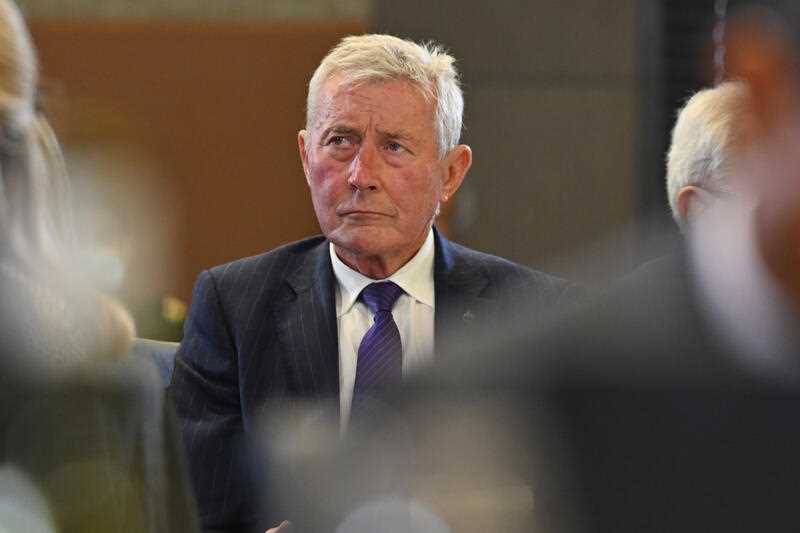The fight to keep a key court judgment secret in the case of Bernard Collaery is continuing despite the federal Labor government dropping his prosecution.
The Canberra lawyer had been facing charges for four years after he was accused of leaking classified information about an alleged Australian spying operation in East Timor.
Attorney-General Mark Dreyfus dropped the prosecution after Labor took office in May.
But Mr Dreyfus is continuing the fight of his predecessor Michaelia Cash to further redact the judgment that ruled the case need not be heard in near total secrecy.
Chief Justice Lucy McCallum told an ACT court on Friday the principle came down to “a tension between transparency and secrecy”.
“You say that national security trumps transparency but there’s a pretty strong argument the other way,” she said, addressing the attorney-general’s senior counsel Perry Herzfeld.
“Ultimately, the administration of justice must be transparent.”
Chief Justice McCallum has reserved her decision.
A spokesperson for Mr Dreyfus said it was the Commonwealth’s view that the judgments “contain sensitive information that would prejudice Australia’s national security”.
“That is why the attorney-general has made an application to the ACT Court of Appeal to consider the version of the judgments to be published,” the spokesperson said.
“The Commonwealth supports publication of the judgments with the national security information appropriately redacted.”
Human Rights Law Centre senior lawyer Kieran Pender said the government needed to give up the secrecy fight.
“It was a landmark win for open justice. But that judgment saying no to a secret trial has still not seen the light of day,” he said.
“Rather than fighting to keep parts of the judgment secret, the new government should end this absurd pursuit of secrecy.”
Mr Pender also called for greater whistleblower protections.
“The attorney-general has bigger priorities than continuing the secrecy obsession of the former government,” he said.
It comes after a review by the Independent National Security Legislation Monitor Grant Donaldson cautioned against secret trials after the case of the former military intelligence officer dubbed Witness J wasn’t disclosed publicly.
His case only came to light after he launched a court challenge against the prison for tipping off police about a memoir he was writing.
By Dominic Giannini in Canberra
Get the latest news, sport, entertainment, lifestyle, competitions and more delivered straight to your inbox with the Canberra Daily Daily Newsletter. Sign up here.



